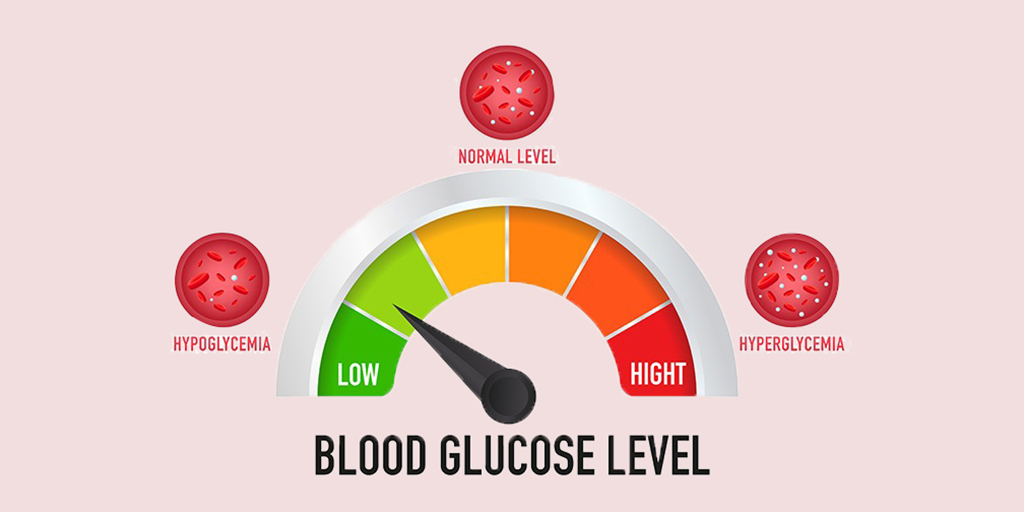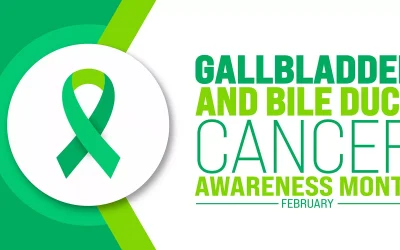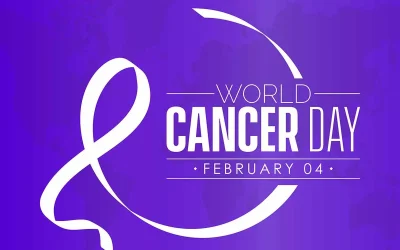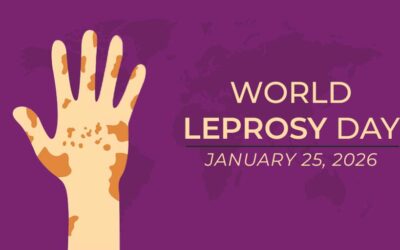Hypoglycemia in Diabetes: Causes, Risks, and Prevention

Low blood sugar, or hypoglycemia, is one of the most common and potentially dangerous health complications faced by people living with diabetes. Frequent or severe episodes of low blood sugar or hypoglycemia not only disrupt daily life but also increase the risk of long-term health problems. In India, where the number of people with diabetes is among the highest globally, hypoglycemia remains a serious health concern due to irregular eating habits, medication misuse, and a lack of awareness. The good news is that with proper monitoring, preventive measures, and timely treatment, the risks can be significantly reduced.
In this article, we will discuss in detail about hypoglycemia in diabetes, including its causes, risks, symptoms, prevention strategies, and when to seek medical care. Let’s start with understanding hypoglycemia.
Table of Contents
ToggleUnderstanding Hypoglycemia (Low Blood Sugar)
Hypoglycemia refers to a drop in blood sugar (glucose) levels below the normal range, usually less than 70 mg/dL. Glucose is the main source of energy for the brain and body, and when levels fall too low, it can quickly lead to dizziness, shakiness, confusion, or even loss of consciousness.
In people with diabetes, hypoglycemia often occurs as a side effect of insulin or certain oral medications, especially if meals are delayed or physical activity is unplanned. It is important to note that hypoglycemia is different from hyperglycemia, which refers to high blood sugar levels. Recognising and addressing hypoglycemia early is key to preventing severe complications.
Causes of Hypoglycemia (Low Blood Sugar) in Diabetes
Hypoglycemia develops when blood sugar levels drop too low to meet the body’s energy needs. In people with diabetes, this can happen for several reasons, such as:
- Skipping meals or irregular eating: Missing a meal or delaying food intake after taking medication or insulin can cause blood sugar to fall.
- Taking too much insulin or medication: Incorrect dosing or sensitivity to diabetes medicines is a common cause of low blood sugar.
- Intense exercise without proper nutrition: Physical activity increases glucose use, and without snacks or adjustments in insulin, hypoglycemia may occur.
- Alcohol and hypoglycemia: Drinking alcohol, especially on an empty stomach, interferes with the liver’s ability to release glucose.
- Other underlying medical conditions: Kidney problems, liver problems, or hormonal disorders can sometimes contribute to low glucose levels.
Symptoms of Hypoglycemia (Low Blood Sugar)
The signs of low blood sugar can appear suddenly and vary from mild to severe. Recognising them early is important to avoid serious complications, especially in people with diabetes.
-
MildtoModerate Symptoms(54mg/dl-69mg/dl)
- Shakiness, sweating, and dizziness
- Fast heartbeat and blurred vision
- Hunger, irritability, or headache
Severe Symptoms(below 54mg/dl)
- Confusion, slurred speech, or disorientation
- Seizures or loss of consciousness
- Night-time symptoms such as restlessness, nightmares, or waking up with a headache
These symptoms may be more pronounced in people with diabetic hypoglycemia, where blood sugar drops due to insulin or medication. Prompt recognition and action can prevent a hypoglycaemic episode from becoming life-threatening.
Risks and Complications of Hypoglycemia (Low Blood Sugar)
Uncontrolled or frequent low blood sugar episodes can affect daily life and lead to serious health consequences. The risks and complications include:
- Short-term risks:
- Reduced mental clarity, making it difficult to concentrate or make decisions
- Increased risk of accidents, falls, or injuries
- Disrupted daily activities due to sudden weakness or dizziness
- Severe hypoglycemia and emergencies:
- Hypoglycaemic episodes causing fainting, seizures, or loss of consciousness
- Dangerously low glucose levels that require immediate medical attention
- Long-term complications if untreated:
- Hypoglycaemia unawareness due to frequent lowering of blood glucose,which is a reversible condition.
- Permanent brain damage due to lack of glucose supply
- Cardiac arrhythmias or cardiac arrest in severe cases
- Multiple organ failure, coma, or even death in extreme situations
Recognising these risks early and managing them effectively is essential to prevent life-threatening diabetes complications.
How is Hypoglycemia Diagnosed?
Identifying hypoglycemia involves checking blood sugar levels and evaluating symptoms to confirm low glucose episodes. Common diagnostic methods include:
- Blood sugar monitoring: Using a glucometer or continuous glucose monitoring (CGM) system helps track fluctuations and detect sudden drops.
- Clinical evaluation: Doctors assess low blood sugar symptoms along with medical history, medication use, and eating habits.
- Laboratory tests: Fasting glucose levels, HbA1c, and other tests may be done to rule out related diabetes complications.
- Reactive or postprandial hypoglycemia check: Blood sugar may be tested after meals to diagnose delayed or abnormal drops.
Accurate diagnosis not only guides hypoglycemia treatment but also helps adjust medication and diet plans to prevent future episodes.
Treatment of Hypoglycemia (Low Blood Sugar)
Managing hypoglycemia requires quick action to restore normal blood sugar levels and prevent complications. Treatment may vary depending on the situation:
- Immediate correction with fast-acting carbohydrates: Follow the Rule of 15 by consuming 15 grams of glucose (such as glucose tablets, fruit juice, or regular soft drinks). Recheck blood sugar after 15 minutes and repeat if it remains low.
- Stabilising with follow-up snacks: After initial recovery, eat a small snack containing complex carbohydrates and protein (such as chapati with dal or whole wheat roti with peanut butter) to maintain stable glucose levels.
- Emergency treatment for severe cases: If a person becomes unconscious or cannot swallow, an emergency glucagon injection(under supervision of doctor) is required, followed by urgent hospital care.
- Long-term lifestyle management: Adjusting insulin or oral medication under medical supervision, following a balanced diet, planning exercise with care, and avoiding alcohol on an empty stomach help reduce recurrent episodes.
Timely hypoglycemia treatment is critical to prevent a hypoglycaemic episode from progressing into a medical emergency.
How to Prevent Hypoglycemia in Diabetes?
Preventing hypoglycemia is an essential part of diabetes management, as it reduces emergency situations and improves daily quality of life. Key preventive strategies include:
- Regular meal timings: Avoid skipping meals. Eating at consistent times helps stabilise blood sugar levels.
- Balanced diet: Include whole grains, pulses, vegetables, and fruits rich in dietary fibre. Snacks such as poha, upma, or chapati with dal can help maintain steady glucose levels.
- Blood sugar monitoring: Regular checks using a glucometer or continuous glucose monitoring (CGM) device help detect low glucose levels early.
- Medication adjustments: Work with the doctor to fine-tune insulin or oral diabetes medicines to prevent unnecessary sugar drops.
- Exercise planning: Eat a small carbohydrate-rich snack before intense workouts to avoid sudden hypoglycemia.
- Avoiding alcohol on an empty stomach: Alcohol interferes with glucose release from the liver, increasing the risk of hypoglycemia.
These steps, combined with regular follow-ups, significantly lower the risks of hypoglycemia in diabetes.
When to Seek Emergency Care in Case of Hypoglycemia (Low Blood Sugar)
Certain episodes of hypoglycemia require urgent medical attention, especially when blood sugar levels drop dangerously low. Emergency care should be sought if:
- The person becomes unconscious or unresponsive
- Seizures or convulsions occur during a hypoglycaemic episode
- Symptoms such as confusion, slurred speech, or vision loss do not improve after treatment
- Frequent severe hypoglycemia continues despite adjusting medication and diet
In such cases, immediate hospital care is critical to prevent long-term complications such as brain injury, cardiac arrest, or coma.
When to Consult a Doctor for Hypoglycemia
Not every episode of low blood sugar requires emergency care, but frequent or unexplained hypoglycemia should not be ignored. A doctor’s consultation is important if:
- Low blood sugar symptoms occur more than once a week
- Episodes happen without a clear cause, such as missed meals or excess medication
- Blood sugar drops at night, disturbing sleep or causing morning headaches
- There are changes in insulin or medication requirements
- Hypoglycemia occurs alongside other diabetes complications such as kidney or heart problems
Early consultation allows doctors to adjust treatment plans, recommend dietary changes by expert dietitians, and provide strategies to prevent future hypoglycaemic episodes.
Why Choose Graphic Era Hospital for Hypoglycemia and Diabetes Care
At Graphic Era Hospital, we recognise that managing diabetes goes beyond controlling blood sugar levels. Hypoglycemia can be frightening, but with the right care, it can be effectively managed and prevented. Here’s why people living in Dehradun and nearby areas choose us for complete diabetes care:
- Experienced Endocrinologists: At Graphic Era Hospital, our endocrinologists are highly experienced in managing diabetes-related hypoglycemia. They provide accurate diagnosis, adjust insulin and medication safely, and guide patients with preventive strategies to reduce recurrent low blood sugar episodes.
- Advanced Technology and Monitoring: We offer state-of-the-art facilities for blood sugar monitoring, including continuous glucose monitoring systems and advanced laboratory tests.
- Comprehensive and Personalised Care: From emergency treatment of hypoglycaemic episodes to a complete Diabetes education program, which includes a diabetes-tailored diet and lifestyle counselling, insulin dose titration, correct insulin injection technique, and much more, we ensure every patient receives holistic support.
If you are looking for specialised care for diabetes and hypoglycemia in Dehradun, Graphic Era Hospital is here to support you. Our team of experts provides advanced monitoring, treatment, and personalised counselling to ensure safe and effective diabetes management. To book a consultation with a diabetes specialist at Graphic Era Hospital, call 1800-889-7351 today.
Frequently Asked Questions
What blood sugar level is considered hypoglycemia?
Hypoglycemia is generally defined as a blood sugar level below 70 mg/dL. Severe episodes may occur if glucose levels fall much lower.
What are the early warning signs of low blood sugar?
Early signs include shakiness, sweating, dizziness, blurred vision, and irritability. Recognising these symptoms early helps prevent severe hypoglycemia.
Can hypoglycemia happen without diabetes?
Yes, though less common. Conditions such as hormonal disorders, kidney disease, alcohol use, or certain medications can also cause low glucose levels.
How dangerous is hypoglycemia for diabetics?
Severe hypoglycemia can lead to confusion, seizures, cardiac arrhythmias, or coma if left untreated. Prompt treatment reduces the risks.
What foods help prevent hypoglycemia?
Balanced meals with whole grains, pulses, vegetables, and snacks rich in complex carbohydrates help maintain steady blood sugar levels.
How does exercise affect blood sugar and hypoglycemia risk?
Intense exercise uses up glucose quickly. Eating a carbohydrate-rich snack before workouts can reduce the chance of a hypoglycaemic episode.
Can alcohol trigger hypoglycemia in diabetes?
Yes, alcohol can interfere with the liver’s ability to release glucose, especially when consumed on an empty stomach.
What is the Rule of 15 in treating hypoglycemia?
It means consuming 15 grams of fast-acting carbohydrates, checking blood sugar after 15 minutes, and repeating if still low.
When should I see a doctor for hypoglycemia near me?
If you experience frequent or unexplained episodes of low blood sugar, it is important to consult a diabetes specialist. For those in Dehradun, the endocrinologists at Graphic Era Hospital offer advanced diagnosis, treatment, and ongoing support for managing hypoglycemia.
By Specialities
- Bariatric Surgery
- Cancer Care
- Cardiology
- Dental
- Dermatology
- Diabetes & Endocrinology
- Endocrinology and Diabetes
- ENT (Ear Nose Throat)
- Eye Care
- Gastroenterology
- Haematology
- Health Awareness
- Health Care
- Health Tips
- Hematology
- Hepatology
- Internal Medicine
- Mental Health and Behavioural Sciences
- Metabolic
- Neonatology
- Nephrology
- Neurology
- Nutrition & Dietetics
- Obstetrics & Gynaecology
- Oncology
- Ophthalmology
- Orthopaedics
- Paediatric
- Physiotherapy & Rehabilitation
- Plastic and Reconstructive Surgery
- Psychology
- Pulmonology
- Rheumatology
- Spine
- Urology
Recent Posts
- Gallbladder and Bile Duct Cancer Awareness Month 2026: All You Need to Know
- World Cancer Day 2026: Spreading Awareness, Inspiring Action
- Common Cold: Causes, Symptoms, Stages, and Simple Home Remedies
- What Happens When the Body Does Not Get Enough Vitamin D?
- World Leprosy Day 2026: Why Awareness is Still Important Today
Need expert medical advice?
Share your details and our healthcare specialists will reach out to assist you.
By proceeding, you acknowledge and agree to our Privacy Policy, Terms of Use, and Disclaimer.




















